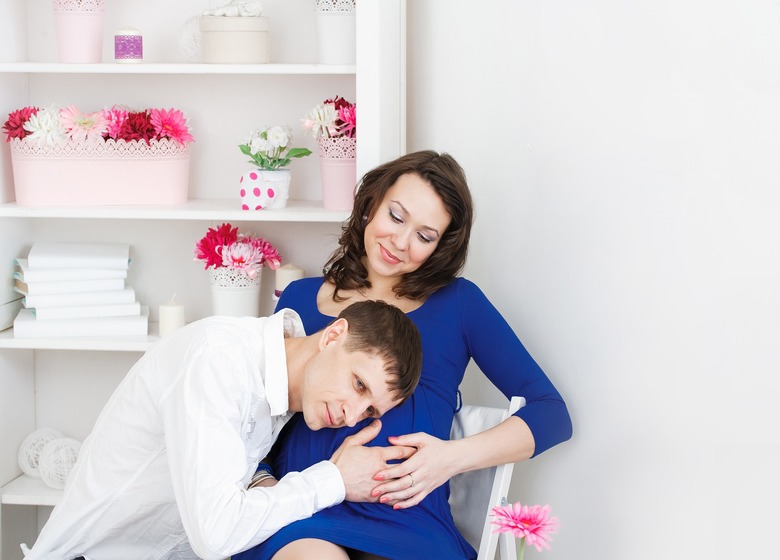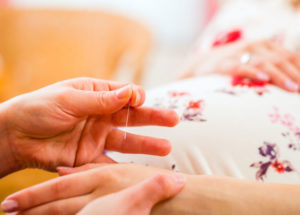Your pregnancy may seem unreal before you begin to feel the movements of your baby. Until then, the main symptoms that help you realize you’re pregnant have to do with discomforts like nausea and morning sickness. But once your child is big enough to make the movements you can feel, your pregnancy starts to feel more real than ever before! For every mother to be, this is a very exciting phase. While each baby has its own personality and activity levels that make each pregnancy special. There are some statistics that can be used by mothers to assess if everything is progressing as it should. Let us look at the various factors closely related to baby kicks during pregnancy to read the signs.
Facts About Baby Kicks During Pregnancy
1. Baby kicking has no fixed time to start
When your pregnancy has been confirmed and you have passed the initial pain, one of the questions in your mind is which month of pregnancy will the baby start to kick? Even when others around you seem to ask you the same question endlessly, you may be perplexed. So in what month do you feel the kick of your baby, or rather when do you feel the kick of your child? One thing to keep in mind is that every pregnancy is different. There’s no hard and fast rule as to when you’re going to feel your baby moving around. Many women feel it in their pregnancy early, while other women feel it much later. This can also differ with each of your pregnancy if you’ve had children before.
2. Kicks mean a child’s normal development and health
The kicks of the child show that within the womb the baby is growing well. You must understand that when the child turns, flips, rolls, and kicks into the womb, he is active In fact, when the child spreads out his arms, a spinning sensation and flutter can be felt in the abdomen. In the later stages of pregnancy, these motions become more distinct.
3. The kicks of the baby increase while lying on the side
If you are lying on your side, you can feel more kicks. This is because, when lying on the left or right side, the flow of blood to the baby improves, increasing their movement. When the mother slept on her back, the infant became less responsive, saving oxygen. When the mother was on her left or right side, the babies were only in active mode. The baby quickly changed behavior status when the mother changed position during sleep, for example from left to back sleeping.
4. Most mothers experience baby kicks from 16 to 25 weeks
Around 16 and 25 weeks of pregnancy, baby kicks can usually be felt. If you’re a mom for the first time, expect the movements to feel closer to the 25th week mark. If you are worried that even after you pass this threshold, there is no apparent movement, you must consult your doctor. There are also several times where the child has been kicking all the time, but you haven’t been able to associate the sensation with the kicking of the baby This is because in the initial stages the kicking of the child may not really feel like a real kick. It is a subtle and barely discernible movement that gains intensity as time progresses and then becomes noticeable.
5. Nothing to worry about late pregnancy with reduced kicks
Babies usually take 20 to 40 minutes (sometimes up to 90 minutes) of rest in the womb at a time. But, as they grow in size, in the later stages of pregnancy, their motions and rolling become difficult. Therefore, reducing the number of kicks is natural. You can feel painful kicks under your ribs during this period, however, and jerking that lasts for a few minutes.
6. It is advisable to record baby kicks
Experts suggest that mothers should keep track of the movements of their baby to ensure that everything is well. You don’t have to do it all the time. You could set a certain time of the day by simply observing your baby’s movements for a few moments. If needed, make a log and see how long it takes you to record a certain number of kicks. This should allow you to identify a pattern to decide when your baby is active and when he sleeps or rests, although there may be differences over the day.
7. At night, baby kicks can get more pronounced
Why do babies kick in the womb at night is one of the questions that many pregnant women ask doctors? In fact, because of the babies ‘ constant activity at night, most mothers lose sleep. The reason is that when you’re sleeping, your baby appears to be alert and active and there’s not much noise around. It is also because during the day when you are very busy, you may not note the movements of the child. Furthermore, once the body sleeps, the movements appear to be more pronounced during the day.
8. Baby kicks are affected by the diet of the mother
Baby movements are also related to the food you eat. You can see your baby getting excited and after a meal showing strong activity. This is due to the sudden increase in energy from the food you eat. Stimulants such as caffeine can also induce baby movement bursts. Try reducing the amount of sugary or caffeinated drinks, and you should be able to see a positive difference if your baby is too active for your own gain. When a baby disturbs your sleep time, try standing up and walking around for a short time. This can help him relax and settle down, helping you to sleep better.
Baby kicks during pregnancy are not only an important health predictor of your child but also an important variable that should be monitored. Even the pattern is the confirmation that the child is doing well. It may be a good idea to talk to your doctor about any changes to the regular pattern.
Also Read: Increased Hunger During Pregnancy
DISCLAIMER: These facts may be different for the people having medical conditions. Results may vary from person to person.













